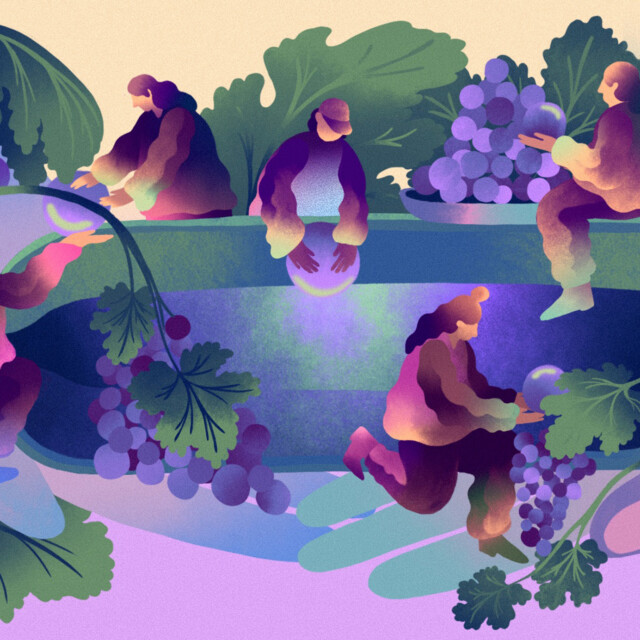It took me a while to figure out why, over the last half-decade or so, I’ve started to recoil more and more at the use of the term “low-intervention” in the wine industry. At first, I thought it was because the term is part of a whole suite of wine verbiage that sounds like it’s saying something insightful but is so ill-defined as to be functionally useless for communication. After all, what exactly does “low-intervention” mean in wine terms?
Wine is fundamentally a high-intervention product. Without a tremendous amount of human guidance, grapes on the vine either become bird food, more vines, or compost. Even if we were to limit usage of the term to only what happens once grapes enter the winery, a substantial amount of human effort still goes into turning those grapes into a tasty bottle of wine. Pretending otherwise does a disservice to all of that skill, knowledge, and labor, and it also further encourages wine drinkers to think about wine only in terms of what is in the glass or the bottle, and not about everything that happened to get it there.
Yes, many who use this term might be attempting to tell you something about their winemaking philosophy. For example, they might not add yeast to initiate or finish fermentation; they might not aggressively seek to extract color or tannin; they might not use new oak barrels to age their wines; or they might not carry out a whole host of other steps that we typically associate with traditional or conventional winemaking. Yet throughout the process, the winemaker must bring their knowledge, experience, and skill to bear on the wine, lest it be flawed, spoiled, or just not very good. Similarly, making the decision not to do something is often as impactful as deciding to take a certain action.
There’s also a more fundamental reason why winemakers should perhaps reconsider using a term that downplays their own importance: job security. Tell the public one too many times that the only thing that matters to make great wine is the vineyard, and they just might believe you. It’s perhaps even worse for those lower down on the winemaking totem pole — the assistant winemakers, production assistants, and interns, who don’t even get that fancy title. Yes, it’s important that we recognize and honor the role that viticulture plays in the finished wine, but the right approach should be to valorize both aspects, not downplay one of them.
This is to say nothing of the entire categories of wine that simply cannot be made without a huge amount of winemaker intervention: sparkling wines, many of which go through a secondary fermentation in the bottle via an elaborate process that requires years, special tools, and a whole lot of expertise, or fortified wines, which again are heavily reliant on process. Even if you were willing to dismiss those entire categories (and you should not), more wines than you think require a ton of labor in the winery.
The more I’ve thought about it, though, what irritates me most about “low-intervention” is that it’s the wine industry’s version of a humblebrag. If you’re not familiar with the term, congratulations on being less online than me, but it basically makes a statement that on the face of it looks like humility, but is in fact a way to boast. In this specific case, it’s attempting to convince wine drinkers that your wines achieve greatness while you screw around on your phone or something. That’s not to say that everyone using the phrase is doing so boastfully, but that’s still how it can come off.
The truth is that making wine is an incredibly time-consuming and fraught job — a fact that I’ve learned from the many winemakers I know who work all over the world, in all different kinds of wineries. They might employ a wide range of different techniques and approaches to the job, and frankly a handful of them have described their winemaking approach as “low-intervention” to me. But having seen how hard they work — how much thought they put into their craft and how many decisions they make about their wines — I’ll never do the same.
This story is a part of VP Pro, our free platform and newsletter for drinks industry professionals, covering wine, beer, liquor, and beyond. Sign up for VP Pro now!
